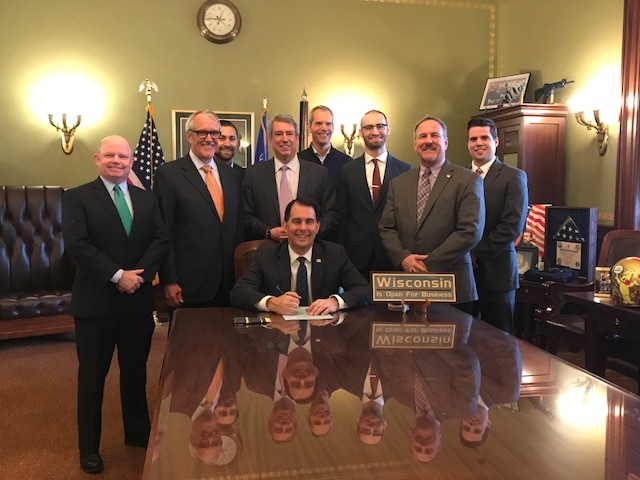Wheelchair recycling program example of successful public-private partnership
By Deb Langham | Interim president and CEO, IndependenceFirst
Jun 17, 2018
Wisconsin is known as a national leader in so many things — great schools and universities, safe communities, the Packers and tourism to name a few. Recently a program that helps people with disabilities while teaching inmates a valuable skill received national recognition by peers in another state.
Alaska is the latest state to show interest in Wisconsin’s innovative Wheelchair Recycling Program. WRP was established in 1988 by volunteers from the National Spinal Cord Injury Association. Its mission was to collect, refurbish, and redistribute used wheelchairs and other mobility and medical equipment to Wisconsin residents of all ages who have mobility restrictions — a lofty goal. However, unique collaborations were key to the program’s overall success. In 2012, IndependenceFirst, a Milwaukee-based nonprofit, acquired WRP and renamed it the Mobility Store. With the new name came more collaboration with the private sector and with the state of Wisconsin.
Today, the Mobility Store partners with inmates, working through Badger State Industries located at Red Granite Correctional Institution, who are trained in refurbishing wheelchairs. In return, inmates receive a Durable Medical Equipment certification. “At any given time, at least 14 inmates are working to refurbish wheelchairs and other DME to help people with disabilities. It’s rewarding work for them and they are learning a valuable skill set that can help them when they re-enter society,” says Chris Trinrud of Badger State Industries.
Once a wheelchair has been refurbished it is sent to one of the Mobility Store locations. The collaboration continues with eight of Wisconsin’s regional independent living centers, which supply equipment for people with disabilities at a reduced cost. In 2017, the Mobility Store sold over 3,500 pieces of equipment.
Alaska has been successful in modifying state regulations to allow for the use of Medicaid funding for the purchase of refurbished durable medical equipment, saving Medicaid funding. An Alaskan delegation plans to visit Wisconsin in September and will include Patrick Reinhart, executive director for the Governor's Council on Disabilities and Special Education, representatives from the Medicaid Office – Department of Social Services, Senior and Disability Waiver Services, Alaska Mental Health Trust Authority and Access Alaska – Independent Living Center.
Patrick Reinhart says, “We have been trying to get a quality reuse and repair program in the State of Alaska Department of Corrections for years.” He went on to say, “We are excited to see firsthand the success and efficiency of Wisconsin’s program. This will help demonstrate the need for this in Alaska. Hopefully we make this dream much closer to reality for people with disabilities in Alaska due to the great work being done in Wisconsin.”

